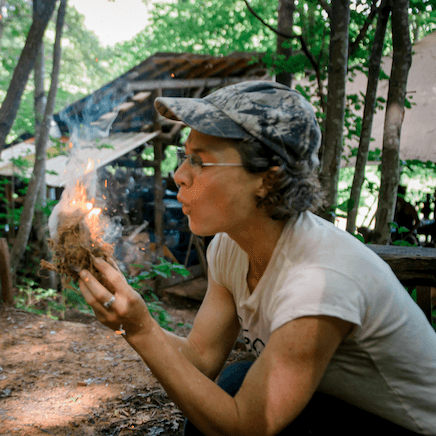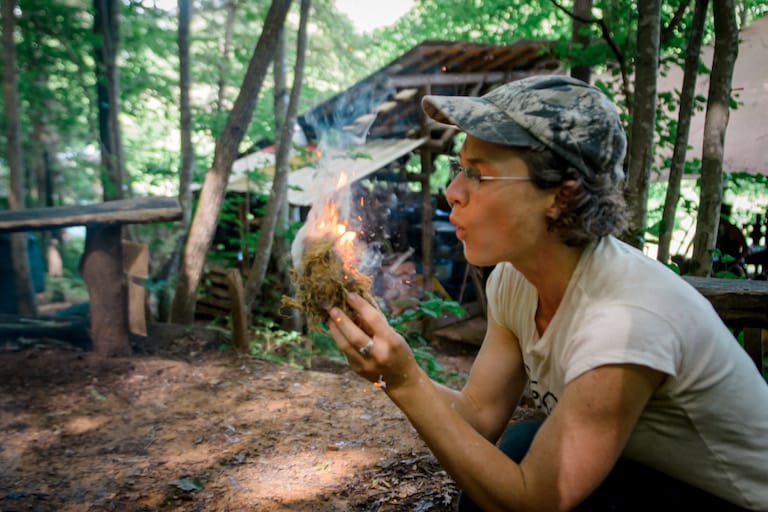On This Page
We welcome you to read through this page for a whole-picture perspective on our Introduction to Primitive Skills Class. If you’re looking for specific information, you can use the following links to skip around:
What You’ll Learn
Debris Shelter Building
- Reading the land to choose a safe, dry site
- Framing a one-person debris hut: ridgepole, ribs, thatch, and insulation
- Layering for water-shedding and warmth until it’s “squirrel warm”
- Practical testing and simple upgrades for overnight comfort
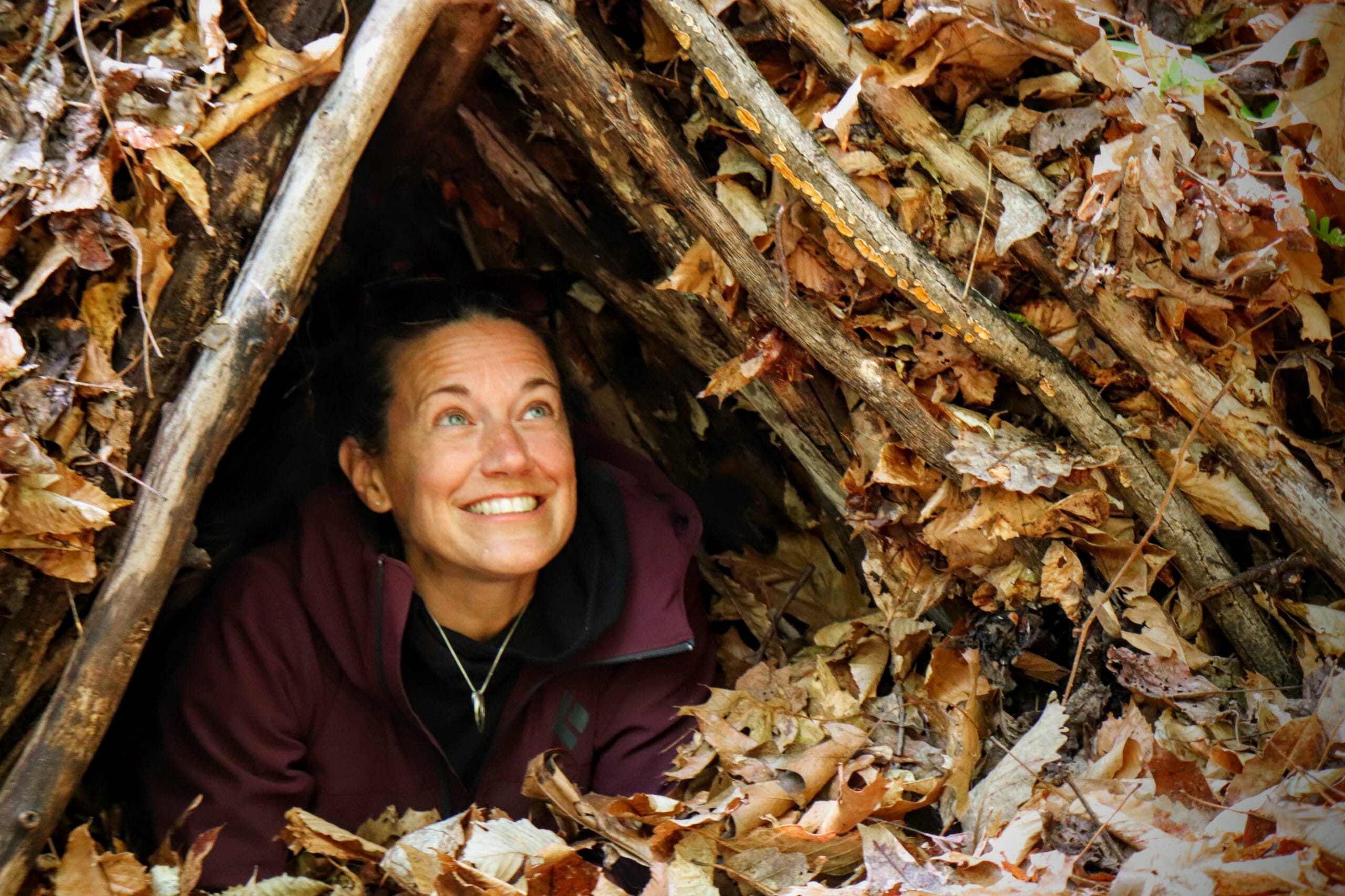
Wild Food & Medicine Identification
- Plant ID basics: patterns, habitat, seasonality, and common look-alikes
- Ethical harvesting and reciprocity with place
- A handful of abundant, approachable species: edibility, medicinal notes, cautions
- Simple field processing and preparation ideas
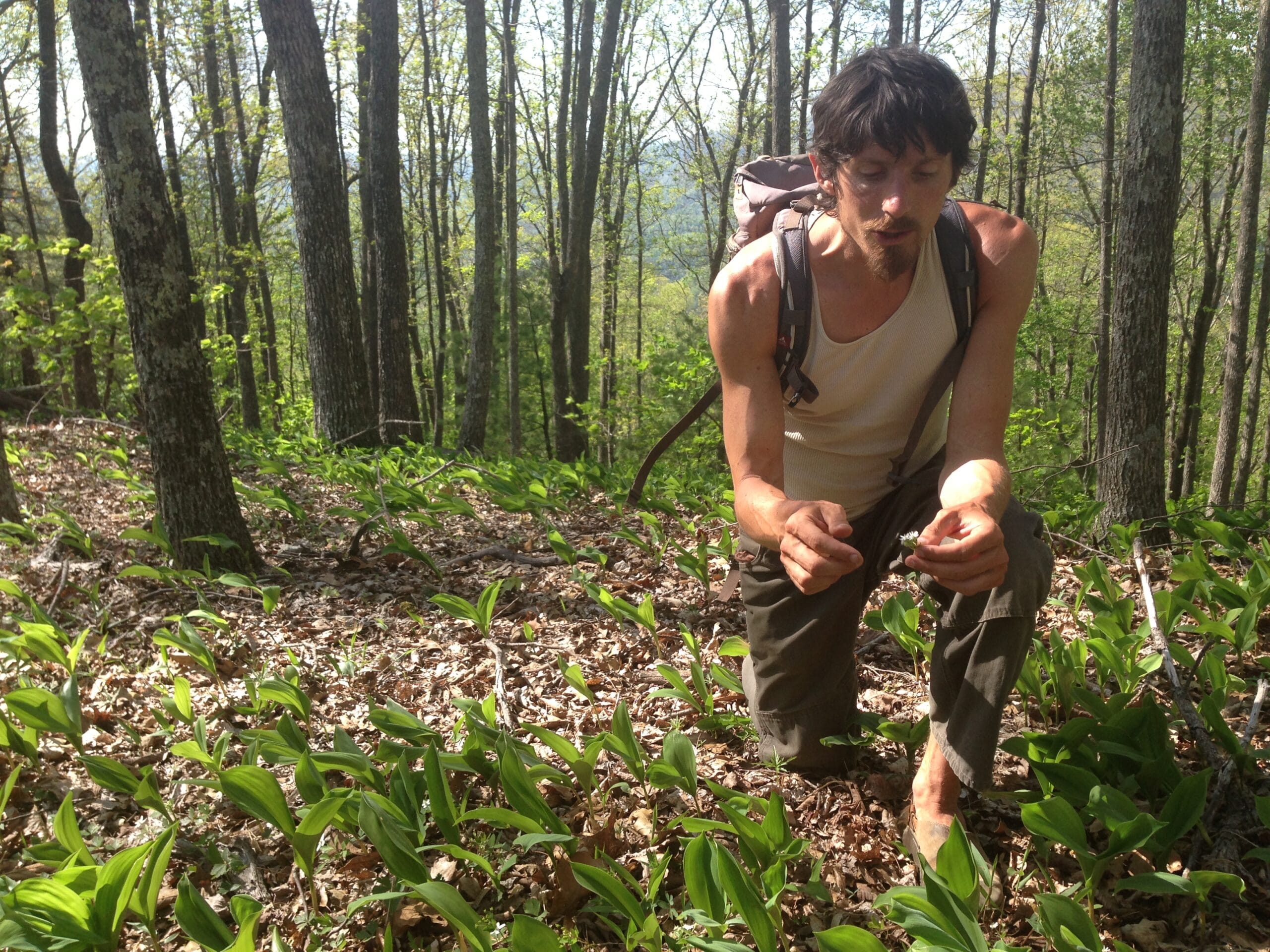
Bow Drill Friction Fire
- The anatomy of a successful kit: spindle, hearth, bow, and socket
- Posture, pressure, speed—tuning technique to get clean dust and a steady coal
- Tinder bundles, coal transfer, and building a small, efficient fire
- Stewardship and safety: local conditions, containment, and care
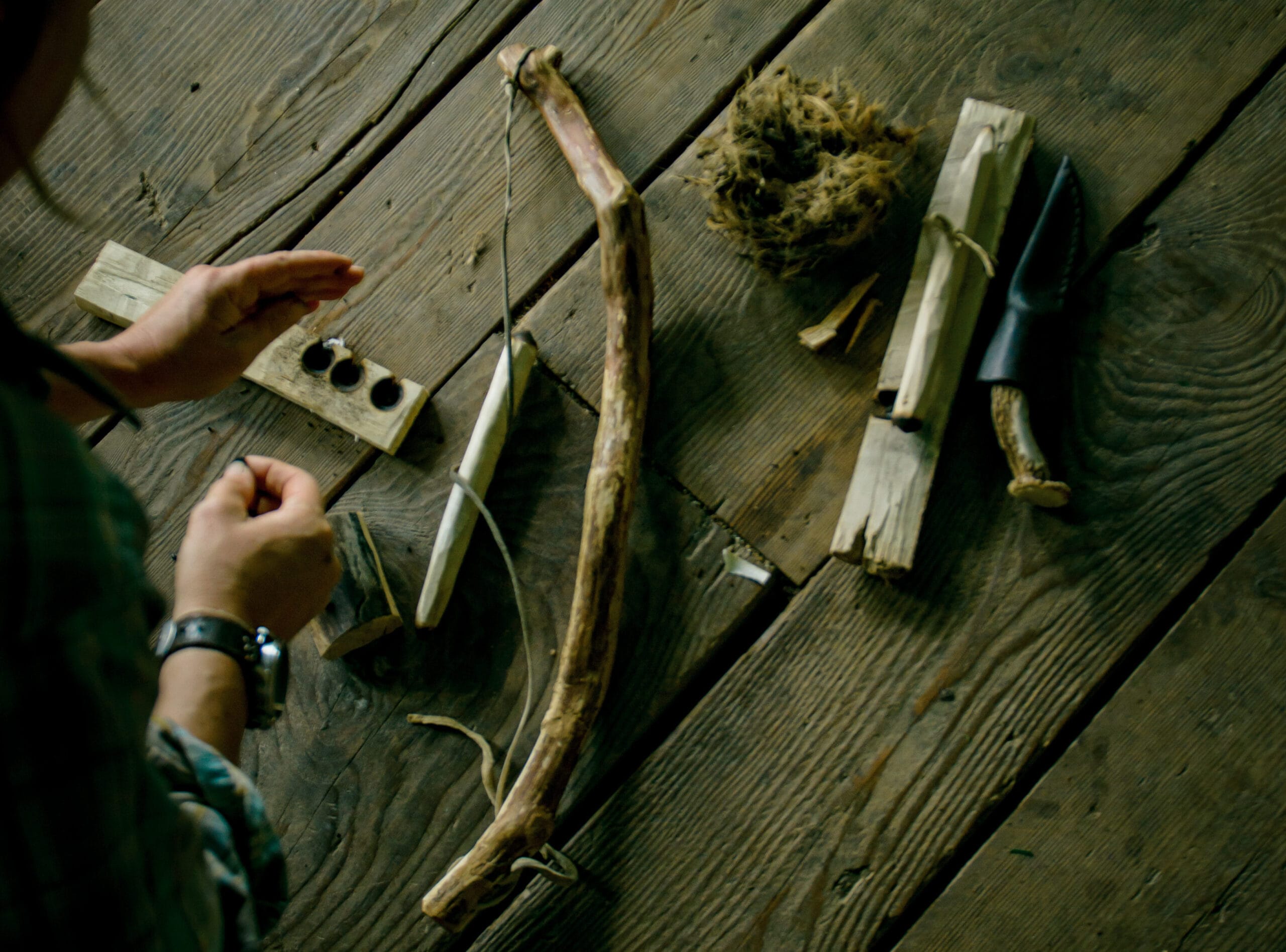
Establishing a Primitive Camp
- Weather readiness: wind, rain, and cold strategies
- Camp layout for safety, comfort, and efficiency
- Light, low-impact kitchen setups and tool care
- Water, sanitation, and simple camp hygiene
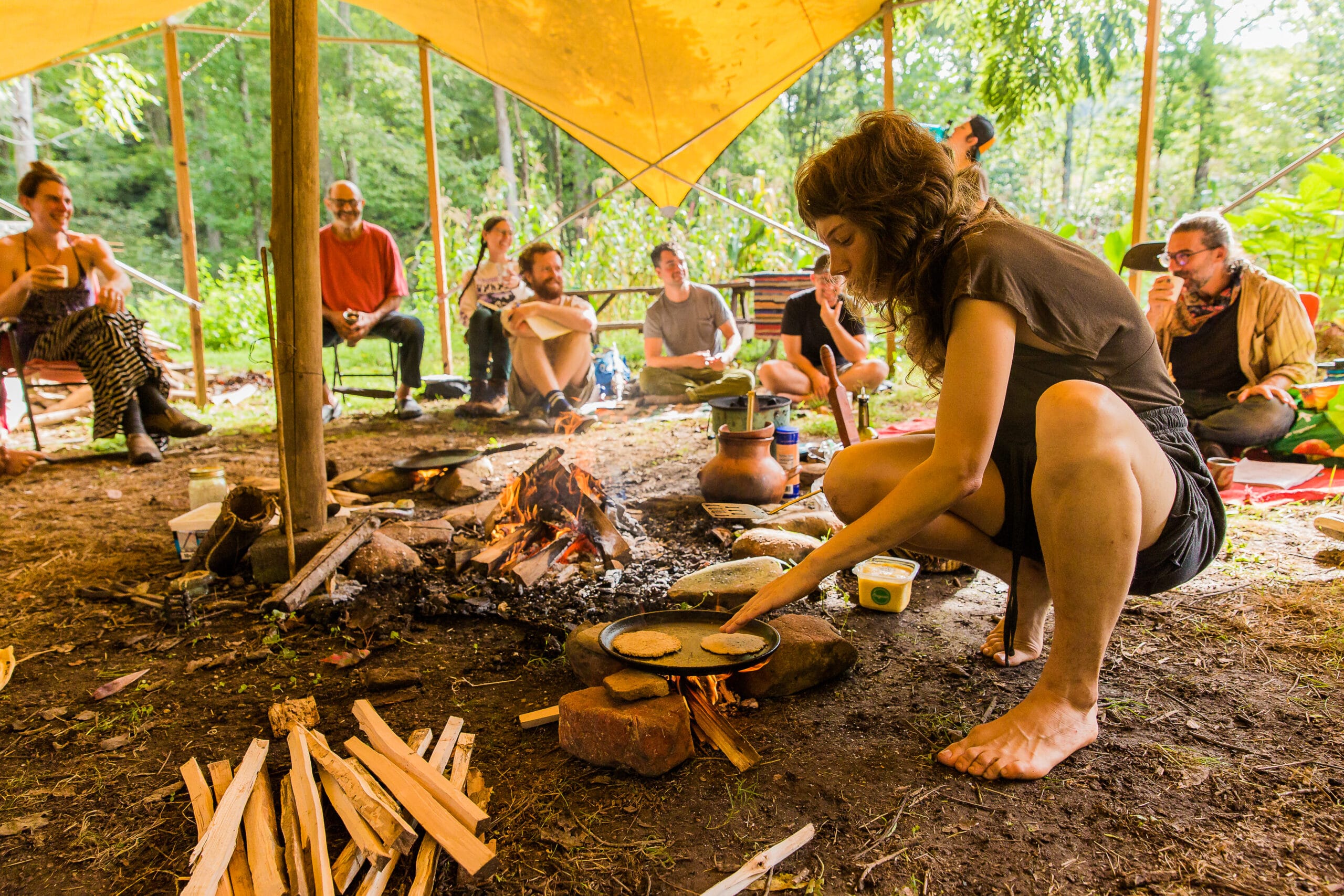
A Primitive Setting for Real Learning
Our Paint Fork campus is a primitive camp tucked into the forest. Here, the classroom is alive: uneven ground, birdsong, running water, and abundant natural materials. The environment itself becomes a teacher, helping you translate concepts into embodied skill. Rustic teaching spaces keep things focused on practice and connection, not frills.

Who This Class Is For
- Curious beginners who want a welcoming, hands-on introduction
- Hikers and campers seeking real-world resilience and comfort
- Parents and educators bringing grounded skills to kids and community
- Homesteaders and herbalists deepening relationship with the land
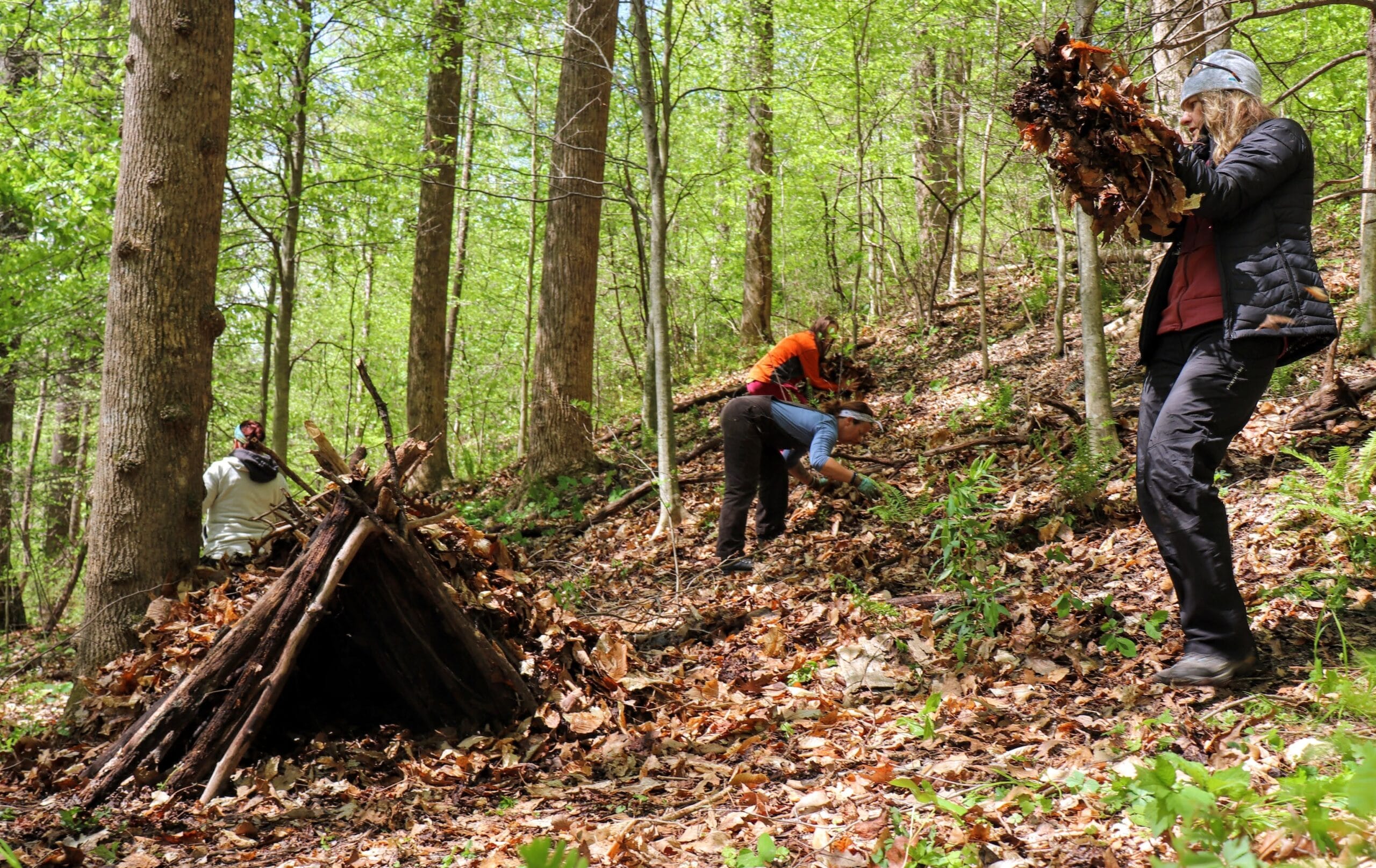
What to Expect
Learning style: Clear demos → guided practice → personal reps, with supportive feedback and plenty of time to try again.
Group feel: Small, encouraging, and attentive so each person gets hands-on help.
Sample daily flow (adapts to weather/group):
- Morning: Opening circle, safety overview, plant walk (wild foods/medicines)
- Midday: Primitive camp setup; simple lashings and layout
- Afternoon: Debris shelter—frame, ribs, thatch, and insulation
- Late afternoon: Bow drill—kit tuning, body mechanics, ember to flame; reflection and clean-up
You’ll leave with practical know-how, muscle memory, and a clear practice path to keep the momentum going.
Keep Me in the Loop…
We’ll let you know when classes open for registration, and send you our fun and informative newsletters.
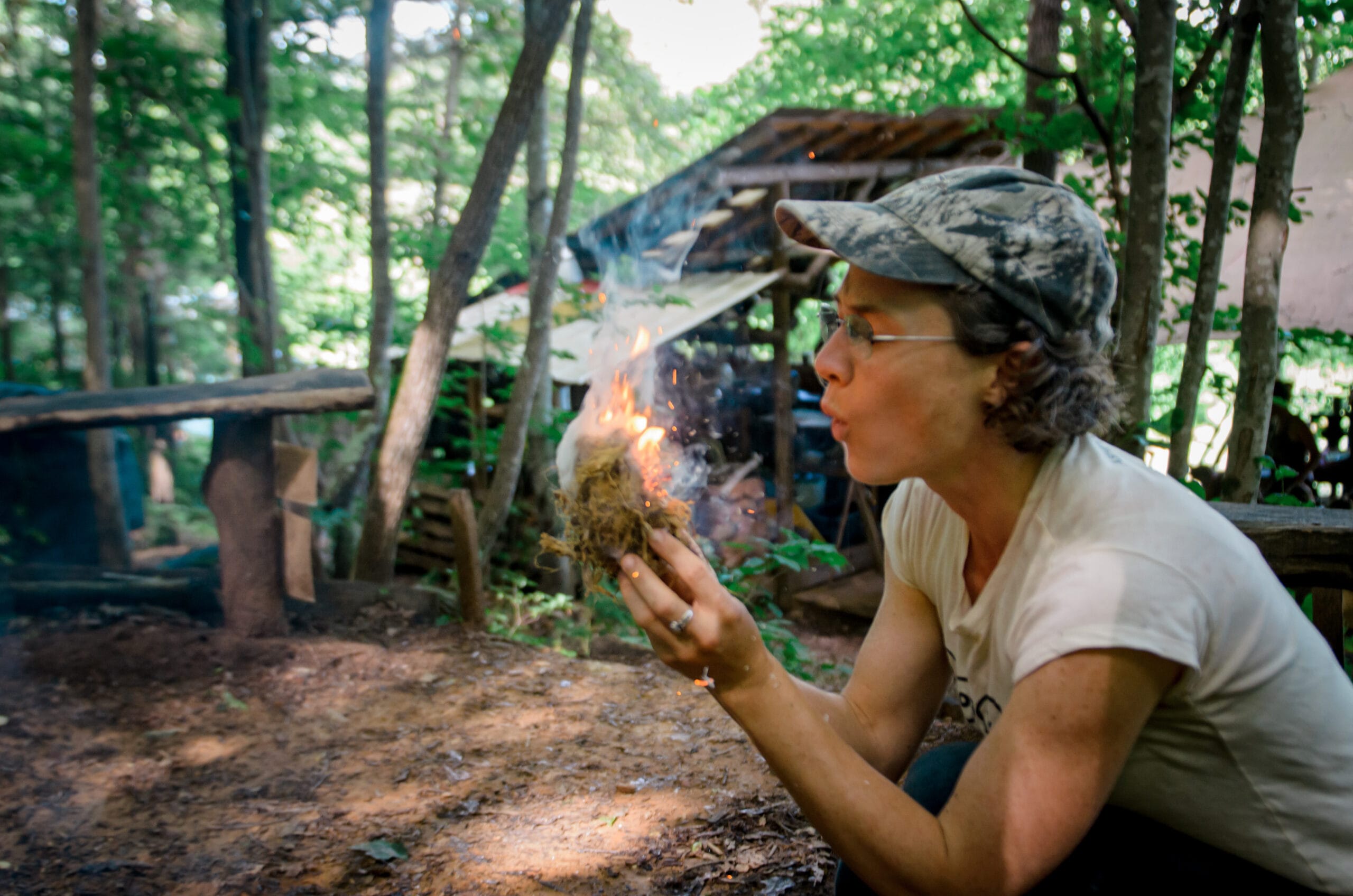
Frequently Asked Questions about Our Primitive Skills Classes
Nope. This class is designed for beginners. If you’ve never made a fire without matches or built a shelter before, you’re in the right place.
That’s the aim. Success depends on a tuned kit, good body mechanics, and steady practice. Many students get a coal; everyone learns exactly how to get closer.
We’ll construct shelters to functional standards and explain the finishing touches that make them warm and dry. Whether we overnight will depend on conditions and the flow of class; you’ll know how to complete one on your own.
Yes—this class takes place at our Paint Fork primitive campus, where the landscape supports authentic practice with real materials and conditions.
Sturdy closed-toe shoes, weather-appropriate layers you don’t mind getting dirty, a full water bottle, snacks/lunch, optional work gloves, and a notebook. If you plan to camp, bring basic camping gear (tent/tarp, sleeping bag/pad, simple cook setup if desired). We’ll send a detailed packing list after registration.
We model safe tool use and body mechanics, emphasize fire safety and site awareness, and practice low-impact gathering. You’ll learn how to be effective and careful.
Welcome to real conditions—part of the learning. We adapt the plan as needed to keep everyone safe and comfortable while still practicing the core skills.
Paint Fork is rustic with uneven ground and outdoor teaching areas. If you have accessibility questions, please reach out before registering so we can help you determine fit.
Please contact us before registering to discuss age, supervision, and readiness for this particular class environment.
See our standard policies and payment plan options during registration; we’re happy to help you find a good fit.
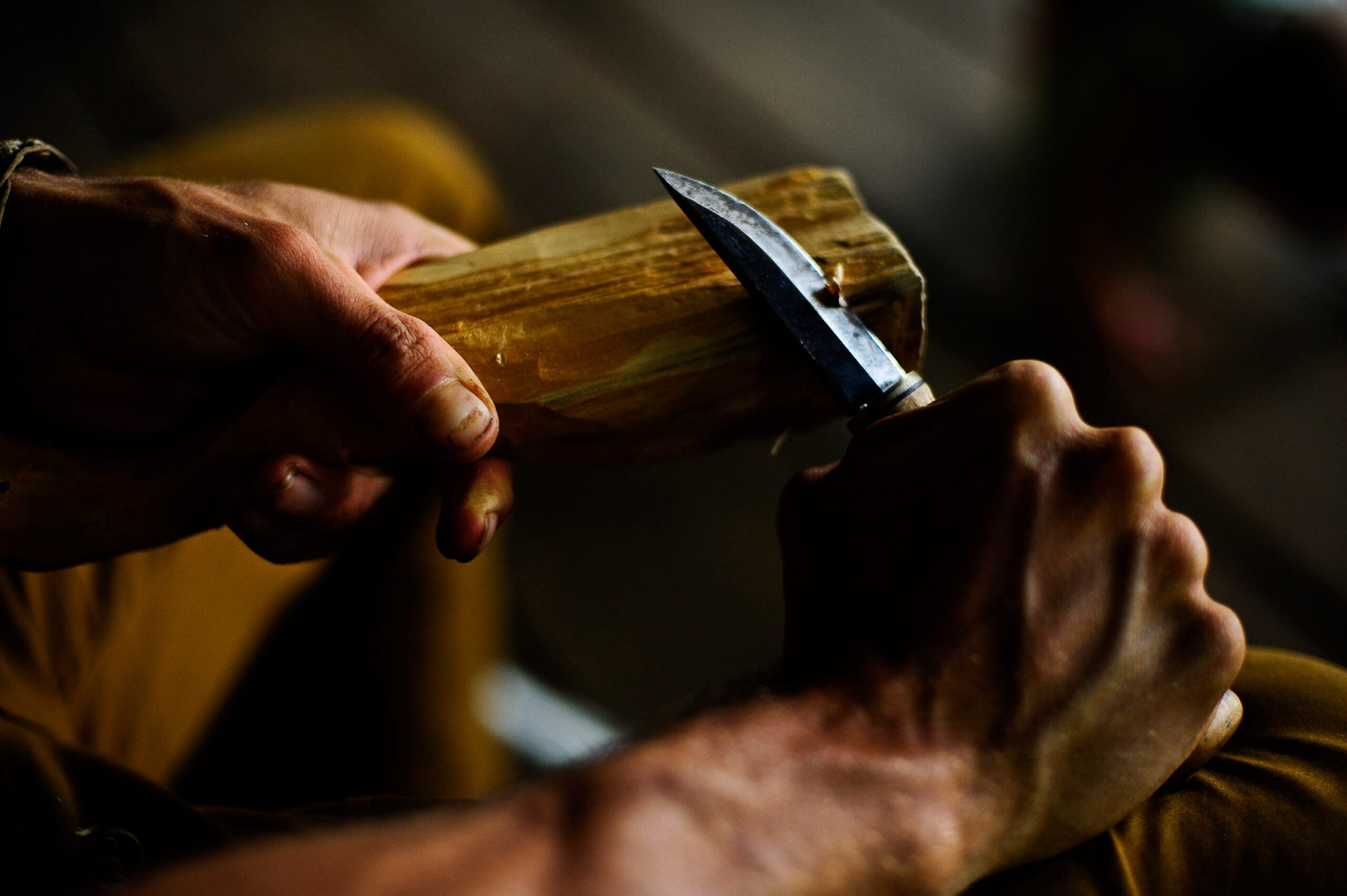
Instructors
Natalie Bogwalker
Alex Kilgore
Our Primitive Skills Classes are held at the Wild Abundance Paint Fork Campus
Our Paint Fork campus is a bustling creekside landscape with gorgeous mountain views, a breathtaking timber-framed pavilion classroom, and covered open-air wood shops for learning in all weather, plus other lovely features like a beautiful outdoor kitchen and newly completed bath house.
Our campus is both a peaceful place and a site for community learning. At times, two or more classes may overlap. This means you’ll have more opportunities to connect with a wider community of students and teachers and you may also notice some additional background noise and activity.
Many of our classes utilize power tools, so please keep this in mind. On occasion, we may need to bring in maintenance folks to keep our structures and systems operating smoothly. We’ll always do our best to make sure your class time is as focused and limited in distractions as possible. Please reach out if you have any questions or concerns.
Please note: our campuses are all unconventional, with rustic amenities and uneven ground. Read more about planning your trip and about our campuses for additional information.
The Paint Fork campus is 30 minutes north of Asheville. You’ll receive detailed directions on how to get here upon registration.
There are many options for staying both on or off campus, click here to learn more!
There are many affordable on and off campus accommodation options, starting at just $35 per night. We also offer free on-site camping to all students. Click here to learn more!
You won’t need a car during your class. There’s a chance you may want to run an errand or go out to dinner with fellow students, and if this happens, it’s highly likely that another student with a car will be happy to give you a lift.
We’ve also got a list of folks who will do airport and grocery shuttle runs for $50-$80 each way. We share this information in the student handbook when you register. If you’d rather rent a car, those run anywhere from $45-$200/day. Just like with lodging, teaming up with a group of fellow students to share a car rental can help build connections and reduce costs.
Pricing & Registration
Tuition will be announced when registration opens. Payment plans may be available.
